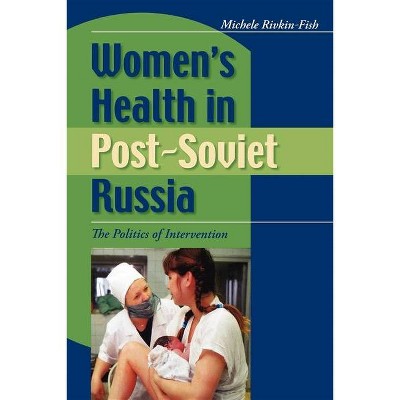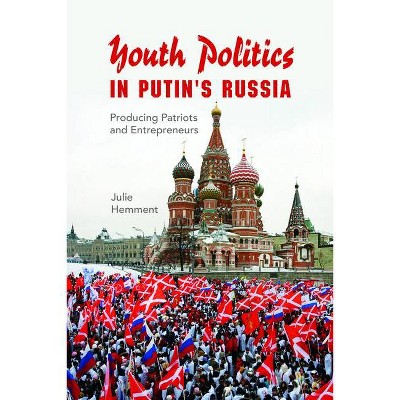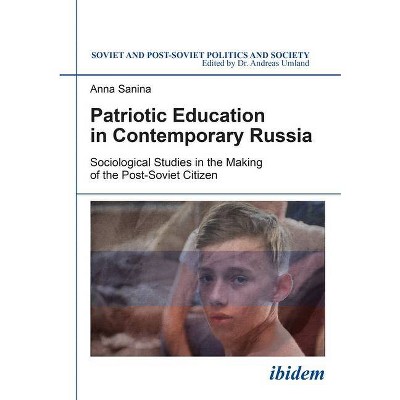Women's Health in Post-Soviet Russia - (New Anthropologies of Europe) by Michele Rivkin-Fish (Paperback)

Similar Products
Products of same category from the store
AllProduct info
<p/><br></br><p><b> About the Book </b></p></br></br>Examining both official health projects and informal daily practices, Michele Rivkin-Fish draws ethnographic and theoretical insights about the contested processes of interpreting and managing neo-liberal transitions in Russia and explores the challenges of bringing anthropological insights to public health interventions for women's empowerment.<p/><br></br><p><b> Book Synopsis </b></p></br></br><p>An unparalleled study of a transforming and privatizing Russian health care system, of the promises and perils of prescriptive programs for change, that points to the areas that need change in the change-makers themselves. . . . part of a larger story about the inherent dangers of current neoliberal economic transformations of fragile post-socialist social welfare arrangements. . . . Rivkin-Fish takes the reader into a new understanding of the fragile and tense relations between state and market transitions, and into the deep and largely silent struggle for gender and health equity in Russia. --Adriana Petryna, author of <i>Life Exposed: Biological Citizens after Chernobyl</i></p><p>In the first decade after the collapse of the Soviet Union, deteriorating public health indicators such as below-replacement fertility and high rates of sexually transmitted diseases, abortions, birth traumas, and maternal mortality raised acute anxieties about Russia's future. This study documents the efforts of global and local experts, and ordinary Russian women in St. Petersburg, to explain Russia's maternal health problems and devise reforms to solve them. Examining both official health projects and informal daily practices, Michele Rivkin-Fish draws ethnographic and theoretical insights about the contested processes of interpreting and managing neo-liberal transitions in Russia and explores the challenges of bringing anthropological insights to public health interventions for women's empowerment.</p><p/><br></br><p><b> Review Quotes </b></p></br></br><br><p>[Michele Rivkin-Fish] sees . . . [one] way out of the crisis: only a democratic participatory approach could greatly affect the situation in the health sector.3 2010</p>-- "Laboratorium"<br><br><p>In Women's Health in Post-Soviet Russia, Michele Rivkin-Fish makes important contributions to the existing literatures on international health development, health care systems across cultures, gender and health, reproduction and nationalism, the anthropology of postsocialism, and fieldwork ethics. . .</p>-- "American Anthropologist"<br><p/><br></br><p><b> About the Author </b></p></br></br><p>Michele Rivkin-Fish is Associate Professor of Anthropology at the University of North Carolina-Chapel Hill.</p>
Price History
Price Archive shows prices from various stores, lets you see history and find the cheapest. There is no actual sale on the website. For all support, inquiry and suggestion messagescommunication@pricearchive.us




















